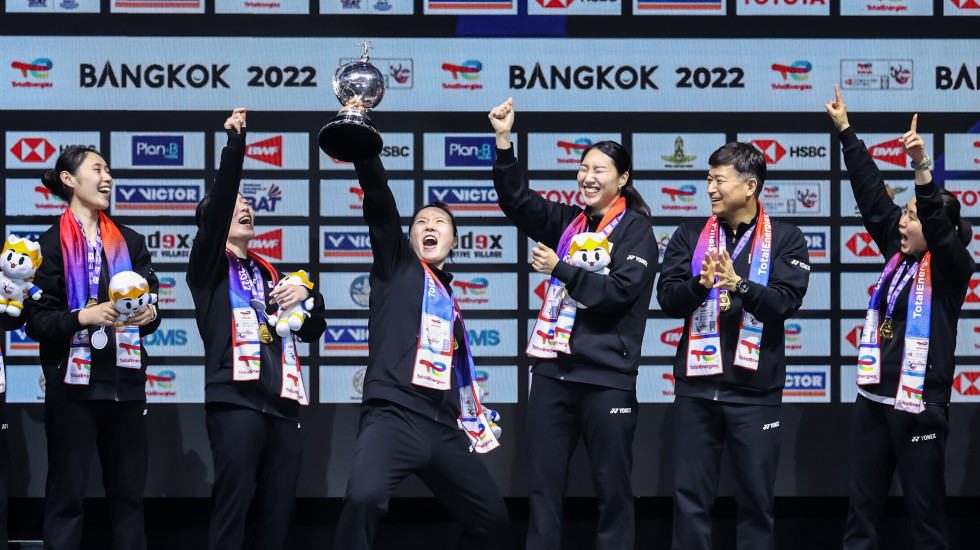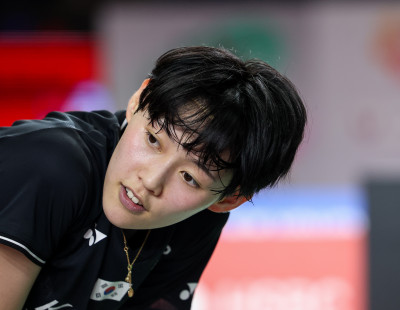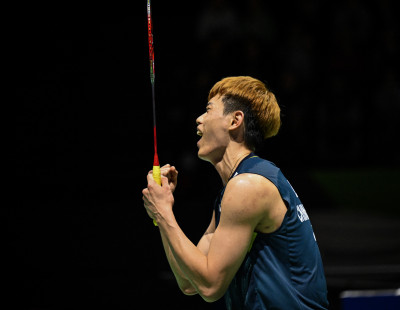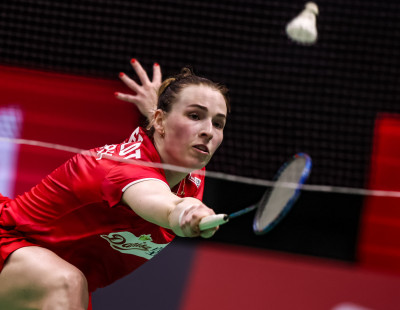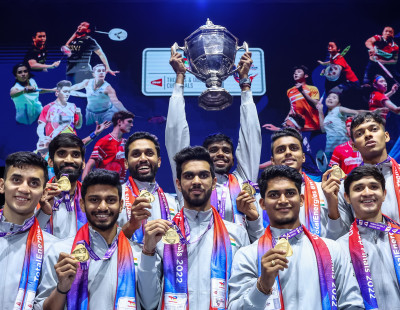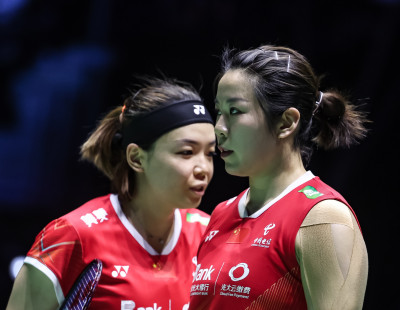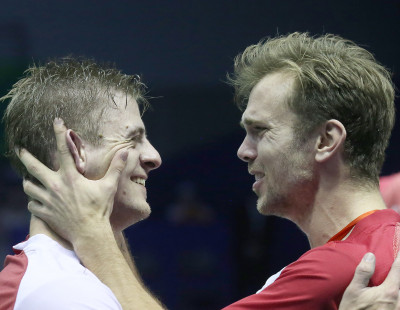This was a year which Korea will recall with fondness.
When Sim Yu Jin made it past Wang Zhi Yi to seal a famous win, Korea achieved one of their proudest moments as they claimed only their second Uber Cup title.
That team title was the high point of Korea’s season, for when they arrived in Bangkok, not many would have given the team – with untested singles players – much of a chance against the other powerhouses.
After beating Denmark 3-0 in the quarterfinals, Korea caused a few raised eyebrows with 3-0 whitewash of defending champions Japan. Yet, only the most fervent Korean supporters would have expected them to upset China, for the 15-time champions had formidable depth, with Asian champion Wang Zhi Yi in third singles.
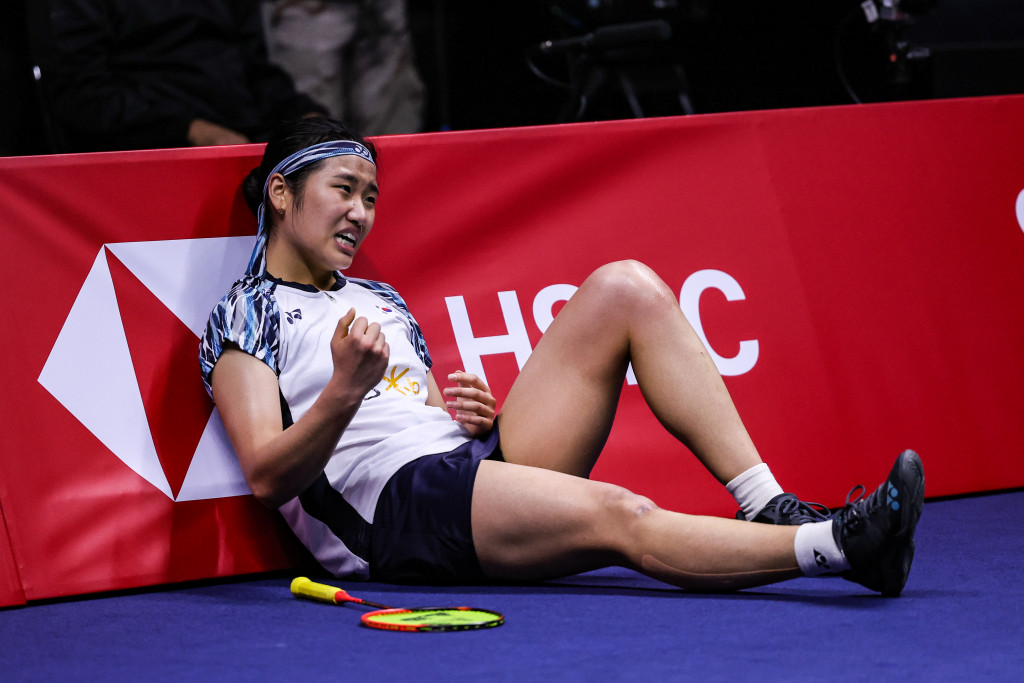
An Se Young continued to grow as a player.
The opening match was a stellar act, with An Se Young and Chen Yu Fei often doubled up in exhaustion towards the end of their 91-minute marathon; Chen edged through 22-20 in the third. That match set the tone for the rest of the final, until it all boiled down to whether Sim Yu Jin, a world No.46 who’s never been in a similar high-pressure situation, could hurt Asian champion Wang Zhi Yi.
The more experienced Wang appeared to have things under control after she took the second game, but then unravelled as the fearless Sim unveiled a repertoire of strokes that left onlookers in disbelief.
“I just told her to stay calm during the match,” said singles coach Sung Ji Hyun, who was part of the only other Korean team – in 2010 – to taste Uber Cup victory. “She was inspired by her teammates. I was hopeful in the fifth match, but she surprised me with the level of her performance.”
While Sim was the unlikely star, Korea’s campaign was shouldered by An Se Young, who has taken on the mantle of spearhead. Korea could also bank upon plenty of experience in the doubles; while in second singles, Kim Ga Eun scored a vital win over Nozomi Okuhara in the semifinals.
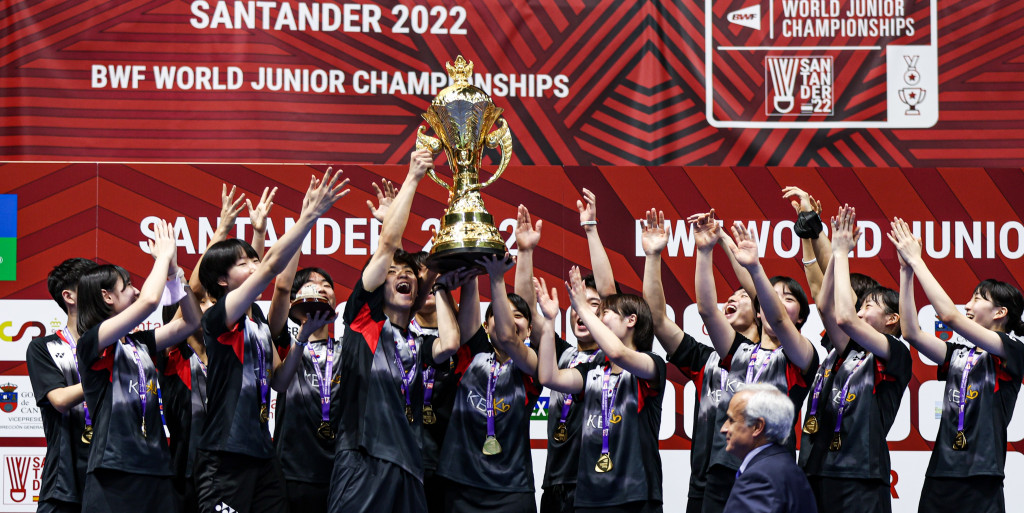
Korea with the Suhandinata Cup.
The Uber Cup win did have other ripple effects, most notably later in the year when the Korean juniors won the Suhandinata Cup after nine years. Korea were unstoppable in the knockout stages, losing only one match. The finds for Korea were Kim Min Seon, who excelled in both singles and doubles (with twin sister Kim Min Ji) and Kim Byung Jae, who won all but one of his seven matches (singles and doubles).
While the Korean women scaled lofty heights, the men had more modest returns. At the Thomas Cup, they were within a whisker of making the semis, falling 3-2 to Denmark.
The year saw Choi Sol Gyu and Kim Won Ho settle into a strong men’s doubles combination. Choi/Kim were in one final and three semifinals and have risen to No.10. Choi’s former partner Seo Seung Jae, now with Kang Min Hyuk, started the year brilliantly winning the Korea Open, but since then their performance curve has been flat.
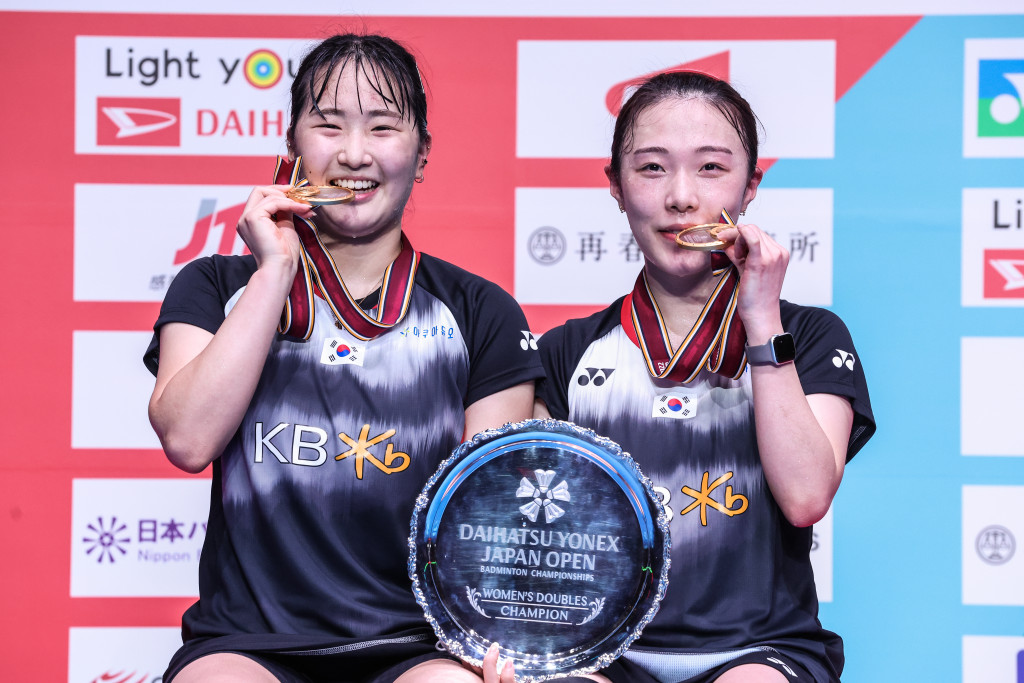
Jeong Na Eun and Kim Hye Jeong with the Japan Open trophy.
Korea’s wealth in women’s doubles stood out. Jeong Na Eun and Kim Hye Jeong were outstanding in their first full season together, winning the Korea and Japan Opens and finishing at No.3.
Korea would’ve been heartened by the performance of young duo Lee Yu Lim and Baek Ha Na, runners-up at the Japan Open, while experienced pairs like Lee So Hee/Shin Seung Chan and Kim So Yeong/Kong Hee Yong were steady as always, even though they couldn’t win a big title.
Korea were low key in mixed doubles, with their best pair, Seo Seung Jae/Chae Yu Jung, at No.18.
In women’s singles, apart from the Uber Cup, the Korean story at the top was pretty much that of An Se Young as she continued to build from where she left off last year. Given the strides she has made in recent times, 2023 could well be her year.


















